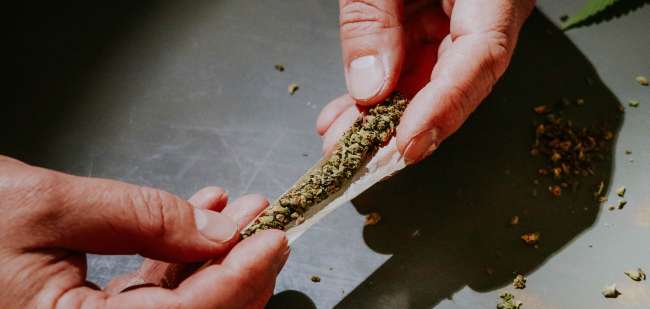The organisations mentioned express their grave concern about a number of reforms proposed in the White Paper on the 'responsible use of Cannabis'. This White Paper proposes a fundamental shift in direction towards further acceptance of the culture of use of Cannabis.
In a democratic society we respect dialogue and understand that politicians are confronted with diverse voices and interests. The law being proposed seems to give the most voice to those who want to use Cannabis freely. The proposed Law seems to reflect a lost battle with cannabis use culture and gives less protection to those who may suffer serious consequences due to Cannabis – individuals or families where there is dependence on Cannabis and other drugs; adolescents; those at risk of developing mental problems due to using Cannabis.
We believe that if this law passes as proposed, Malta will have to face the following repercussions:
- Cannabis will continue to be normalized as a substance which one can use more liberally without many repercussions. This is especially detrimental in adolescent brains where we know that the substance is very damaging to a developing brain. All the more so when the age of those who can make use of Cannabis is set at 18 years, as proposed in the White Paper.
- Traffickers start distributing Cannabis in the quantities indicated so that if their runners are caught, they are exposed only to the administrative fine, or they do not get fined at all if the package weighs 7 grams or less.
- It will be more difficult for persons who are dependent or face difficulties due to Cannabis use to benefit from a care plan as has so far been offered by the Tribunal or the Drug Offenders Rehabilitation Board (DORB). This is because in the light of what is proposed, if a person is in possession of less than 7 grams, they do not even have to appear before the Tribunal. Experience has shown us that many people who have had contact with the Tribunal or the DORB have successfully carried out a plan to address their needs.
- In the current culture, where people seek entertainment using alcohol and other substances, it is of concern whether this proposed law would lead to increased use of Cannabis and other substances.
- If the use of Cannabis increases, there will be more demand on organisations offering help to people using these substances and also on mental health services, as we have already been seeing increases in requests for help in recent years. Thus, implementing these proposals will require strong investment in care.
The White Paper leaves several unanswered questions such as:
- How will the prohibition of public use of cannabis be enforced?
- Will enforcement be carried out to ensure that Cannabis are not used in front of children in homes and that minors do not have access to the substance?
- Will a threshold for the percentage of THC content in Cannabis plants as well as plant weight be established?
- Is it being considered whether some of the proposals go against UN drug conventions?
- Will occupational health and safety obligations be taken into account by employers, should their workers have consumed Cannabis?
- How will people who are driving under the effect be tested?
- Is there a country-specific study on what social impact these proposals can have?
We have always stressed that people using Cannabis for personal use should not be imprisoned or have this marked on their conduct certificate. Nor should these cases take years to be decided by the Courts. We encourage that people who want help have access to a quality service in a timely manner.
Share your thoughts on the OASI Facebook post
Press Coverage:

L-organizzazzjonijiet imsemmija jesprimu t-tħassib serju tagħhom dwar numru ta’ riformi hekk proposti fil-White Paper dwar ‘l-użu responsabbli tal-Cannabis’. Din il-White Paper tipproponi bidla fundamentali fid-direzzjoni lejn iktar aċċettazzjoni tal-kultura tal-użu tal-Cannabis.
F’soċjetà demokratika nirrispettaw id-djalogu u nifhmu li l-politiku jiġi konfrontat b’vuċijiet u interessi diversi. Fil-liġi hekk kif proposta tidher li se tkun qed tagħti l-aktar vuċi lil dawk li jixtiequ jużaw il-Cannabis b’mod liberu. Il-Liġi proposta tidher tirrifletti battalja mitlufa mal-kultura tal-użu tal-Cannabis u tagħti inqas protezzjoni lil dawk li jistgħu jbatu konsegwenzi serji minħabba l-Cannabis – individwi jew familji fejn hemm dipendenza fuq il-Cannabis u fuq drogi oħra; l-adolexxenti; dawk f’riskju li jiżviluppaw problemi mentali bil-Cannabis.
Naraw li jekk din il-liġi kif proposta tgħaddi, Malta ser ikollha taffaċċja dawn ir-riperkussjonijiet:
- Tkompli tiġi normalizzata l-Cannabis bħala sustanza li wieħed jista’ jagħmel użu minnha b’mod iktar liberu mingħajr tant riperkussjonijiet. Dan hu ta’ detriment speċjalment fl-imħuħ tal-adolexxenti fejn nafu li s-sustanza tagħmel ħsara kbira f’moħħ li qed jiżviluppa. Iktar u iktar meta l-età ta’ dawk li jistgħu jagħmlu użu huwa ta’ 18-il sena kif proposta fil-White Paper.
- It-traffikanti jibdew iqassmu l-Cannabis fil-kwantitajiet indikati biex jekk ir-runners tagħhom jinqabdu jiġu esposti biss għall-multa amministrattiva, jew ma jeħlu xejn jekk il-pakkett ikun ta’ 7 grammi jew inqas
- Il-persuni li huma dipendenti jew li qed jaffaċċaw diffikultajiet minħabba l-użu se tkun għalihom iktar diffiċli biex jibbenefikaw minn care plan li s’issa kien qed jiġi offrut mit-Tribunal jew mid-Drug Offenders Rehabilitation Board (DORB). Dan għaliex fid-dawl ta’ dak li qed jiġi propost, jekk persuna tkun f’pussess ta’ inqas minn 7 grammi, lanqas tersaq quddiem it- L-esperjenza wrietna li ħafna persuni li messew mat-Tribunal jew mad-DORB, wettqu b’suċċess pjan li jindirizza l-bżonnijiet tagħhom.
- F’kultura preżenti, fejn persuni jfittxu divertiment bl-użu tal-alkoħol u taħlit ta’ sustanzi oħra, wieħed jitħasseb jekk din il-liġi proposta hix se twassal għal iktar użu ta’ Cannabis u sustanzi oħra.
- Jekk l-użu tal-Cannabis jiżdied, se jkun hemm iktar domanda fuq l-organizzazzjonijiet li joffru għajnuna lill-persuni li jagħmlu użu minn dawn is-sustanzi u anke fuq servizzi ta’ saħħa mentali, hekk kif diġà f’dawn l-aħħar snin qed naraw żidiet fit-talbiet għall-għajnuna. Għaldaqstant jekk dawn il-proposti jiġu implimentati se jkun hemm bżonn ta’ investiment qawwi fil-qasam tal-kura.
Il-White Paper tħalli diversi mistoqsijiet mhux imwieġba bħal:
- Kif se jsir l-infurzar ta’ dan li qed jiġi propost dwar il-projbizzjoni tal-użu fil-pubbliku?
- Kif se jsir l-infurzar biex jiġi żgurat li ma jsirx użu tal-Cannabis quddiem it-tfal fid-djar u biex il-minuri ma jkollhomx aċċess għas-sustanza?
- Se jiġi stabbilit threshold tal-perċentwal ta’ THC fil-pjanti tal-Cannabis kif ukoll il-piż tal-pjanti?
- Qed jiġi kkunsidrat jekk uħud mill-proposti hux qed imorru kontra l-konvenzjonijiet tad-drogi tal-Ġnus Magħquda?
- Kif se jigu kkunsidrati l-obbligu dwar is-saħħa u s-sigurtà fuq il-post tax-xogħol minn min iħaddem, f’każ li ħaddiema tiegħu jkunu kkunsmaw il-Cannabis?
- Kif se jiġu ttestjati nies li jinsabu jsuqu taħt l-effett?
- Sar xi studju speċifiku għal pajjiżna dwar x’impatt soċjali jista’ jkollhom dawn il-proposti?
Dejjem sħaqna li persuni li jużaw il-Cannabis għall-użu personali m’għandhomx jintbagħtu l-ħabs u lanqas għandhom tiċċappsilhom il-kondotta. Lanqas għandhom dawn il-każijiet idumu snin biex jiġu deċiżi mill-Qrati. Ninkoraġġixxu li dawn il-persuni li jixtiequ l-għajnuna jkollhom servizz ta’ kwalità f’ħinu.


